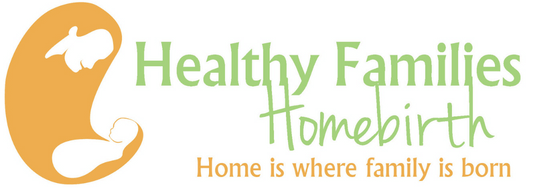Exercise
The age old saying goes, “If you don’t use it; you lose it.” Regular exercise can help with muscle strength, bone health, and cardiovascular wellness. Plus, physical activity can help prevent many chronic diseases and help you heal faster from acute illnesses.
*Be sure to consult your health care provider about a fitness routine. You may have specific health concerns that require modification to what is listed here.
You will want to do activities that increase your heart rate. Aim for 2 hours and 30 minutes a week of moderate-intensity exercise:
- Brisk walking
- Running
- Bicycling
- Swimming
- Jumping rope
No matter where you start with physical activity, it is important to continue to do it. You will find that you will be able to push yourself longer and farther than previously.
Nutrition
Many different diets and fads can be confusing and a few can be dangerous. It is best to keep it simple and stick with whole foods, limited ingredients, and the freshest fruits and vegetables available. The food pyramid from the government has been evolving and is now more individualized than ever. Go to: http://www.choosemyplate.gov/ to customize your dietary needs.
Keeping it Simple:
- Include a protein, fresh or cooked vegetable, a whole grain, and fresh fruit at every meal
- Eat a wide variety of foods
- Drink your way through the day- keep a water bottle near-by and refill it often
- Eat breakfast and don’t skip meals.
- Keep sweets and processed foods at a minimal amount. Use them as a treat for eating so well during the week.
Foods to Avoid!
*Overall, it is best not to waste your money, time, or digestion eating these types of foods.
Trans-fats– This is a manufactured fat that the food industry created to keep pastries and bread on the shelf longer. Unfortunately, our bodies don’t process trans-fats the way that regular fats get processed and they can cause a higher incidence of heart disease, stroke, diabetes, obesity, and liver dysfunction. Trans-fats are also found in most fried foods, fast foods, and packaged bakery products.
Packaged deli meats– Nitrates are the biggest concern from highly-processed, packaged deli meats. When meats, like salami and bologna, haven’t had time to “cure”, they contain the nitrite, NO², which is a carcinogen. Carcinogens are known cancer causing substances. It is best to avoid them whenever possible.
Refined white flour and sugars– White flours and sugars are empty calories. White flour is missing the most nutritious part of the seed. Refined foods can make you feel full, even though you didn’t gain any nutrients from the food. They can also cause constipation and make you feel tired. Plus, refined foods require more insulin to digest, which could lead to diabetes.
Screening
Health screening throughout life is important. Many women feel that an annual gynecological exam is enough, but the rest of the body needs attention also. Below is listed several common conditions that should be screened for on a regular basis. If you have any additional concerns or complaints, be sure to tell your primary care physician about those too. A positive screening can be a shock. Be sure to keep these resources handy if any of these conditions affect your life.
Breast Cancer
- Description: Cancer of the breast tissues; cancer is an abnormal cell that divides, grows, and breaks down healthy cells.
- Screening recommendations: Biennial mammograms for women aged 50 to 74; earlier screening if there is family history or additional factors to consider
- Screening Methods: Breast self-awareness; Clinical breast examinations
- Screening Risks: Breast self-exams and clinical exams are not as through as a mammogram. They could create a false sense of security. Although, mammograms may lead to unnecessary interventions and biopsies of normal breast tissue. Psychological stress of an unknown or false-positive test result is also a risk. There is some concern over radiation exposure and treatment of cancer that may not have caused harm during the woman’s lifetime.
- Resources: http://www.nbcam.org/; http://bcsupport.org/; Be sure to ask your oncologist about local support groups also.
High Blood Pressure
- Description: Adults with high blood pressure will have a systolic blood pressure of 140 mm/Hg or higher and/or a diastolic blood pressure of 90 mm/Hg or higher. Blood pressure readings should be done over several weeks. Several high, consistent readings will verify a diagnosis.
- Screening recommendations: All persons 18 years or older should be screened for high blood pressure. For those with a BP reading of 120/80 mm/Hg or less, screening is recommended every 2 years. For those with Bp reads for 120-139/80-89 mm/Hg, screening should be done every year.
- Screening Methods: Screening is performed with a sphygmomanometer, commonly known as a blood pressure cuff.
- Screening Risks: With the low invasiveness of the sphygmomanometer, blood pressure readings are usually taken at every doctor’s visit. Some people can take their own BP and some pharmacies will have a BP machine. The risk comes more from the person’s reaction to the situation. For example, some people become very anxious when going to the doctor or if they are anticipating a high blood pressure reading. This can temporarily lead to high BP readings and a misdiagnosis.
- Resources: Diet and lifestyle changes can make a big difference in managing high BP. Check out: www.nhlbi.nih.gov/hbp/treat/treat.htm
http://www.mayoclinic.com/health/high-blood-pressure/HI00027
http://www.pcrm.org/health/health-topics/high-blood-pressure-hypertension
Lipids and Cholesterol
- Description: Abnormalities of cholesterol and triglycerides.
- Screening recommendations: Men should be screened starting at age 35. Women should be screened at age 45. Men and women who are at increased risk for coronary heart disease should begin screening at age 20.
- Screening Methods: Blood tests are taken and screened.
- Screening Risks: None known
- Resources: Often lipid disorders are associated with additional factors such as obesity, thyroid dysfunction, or diabetes. By addressing the underlying cause, the disorder may benefit.
Colon Cancer
- Description: Colon cancer is the second leading cause of cancer death in the U.S. It is the 3rd most common type of cancer.
- Screening recommendations: Screening should start for adults at age 50 and continue until age 75.
- Screening Methods: Fecal occult blood testing, sigmoidoscopy, or colonoscopy.
- Screening Risks: The procedure of a colonscopy carries risks of perforation of the colon, major bleeding, diverticulitis, severe abdominal pain, cardiovascular events, and death. The flexible sigmoidoscopy carries less risk than the colonscopy. Fecal testing has no known risks. A CT colongraphy exposes the patient to some radiation, small potential for perforation, and a high false-positive rate.
- Resources: As with any cancer, ask your oncologist for local support groups. The http://www.ccalliance.org/ and http://fightcolorectalcancer.org/ provide online support groups.
Osteoporosis
- Description: Osteoporosis is a condition where the bones lose calcium at a higher rate than building it. The bones become fragile and bone fractures become more likely. It has often been considered a pediatric disease with geriatric consequences.
- Screening recommendations: All women aged 65 and older should be screened. Women between the ages of 50-64 should be evaluated based on additional risk factors before deciding whether or not to screen. Screening men for osteoporosis should be based on individual factors and may or may not have similar benefits as screening for women.
- Screening Methods: Most tests measure the density of the bone. The common tests include: dual-energy x-ray absorptiometry (DXA) of the hip and lumbar spine and quantitative ultrasonography of the calcaneus.
- Screening Risks: DXA exposes patients to ionizing radiation. Quantitative ultrasonography seems to be just as effective as DXA, more portable, and does not expose the patient to ionizing radiation.
- Resources: Foods that are high in calcium and Vitamin D are important to have in one’s diet. For more information or support: http://www.betterbones.com/default.aspx and http://www.nof.org/
References:
Lipid disorders (cholesterol). (n.d.). Cleveland Clinic. Retrieved from http://my.clevelandclinic.org/disorders/lipid/endo_default.aspx
Royall, P., & Troiano, R. (2008, October). 2008 Physical activity guidelines for Americans. 2008 Physical Activity Guidelines for Americans: Chapter 2. Retrieved from http://www.health.gov/paguidelines/guidelines/chapter2.aspx
U.S. Preventive Services Task Force. Screening for breast cancer: U.S. Preventive Services Task Force Recommendation Statement. Ann Intern Med 2009;151:716-726.
U.S. Preventive Services Task Force. Screening for Colorectal Cancer: U.S. Preventive Services Task Force Recommendation Statement. AHRQ Publication 08-05124-EF-3, October 2008. http://www.uspreventiveservicestaskforce.org/uspstf08/colocancer/colors.htm
U.S. Preventive Services Task Force. Screening for osteoporosis: U.S. Preventive Services Task Force recommendation statement. Ann Intern Med. 2011; Jan 18 [Epub ahead of print].
U.S. Preventive Services Task Force. Screening for high blood pressure: U.S. Preventive Services Task Force recommendation statement. Ann Intern Med 2007:147-783-786.





